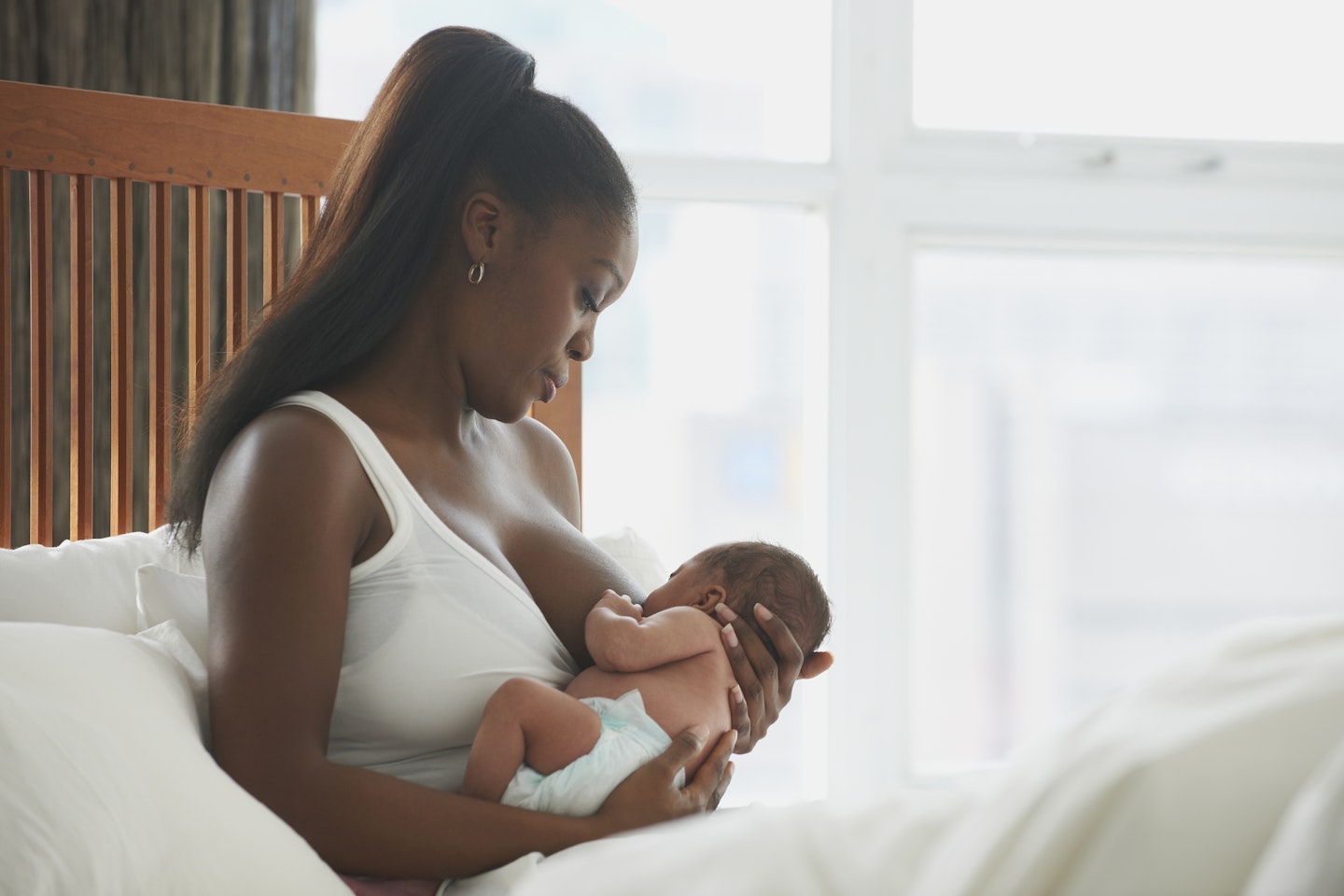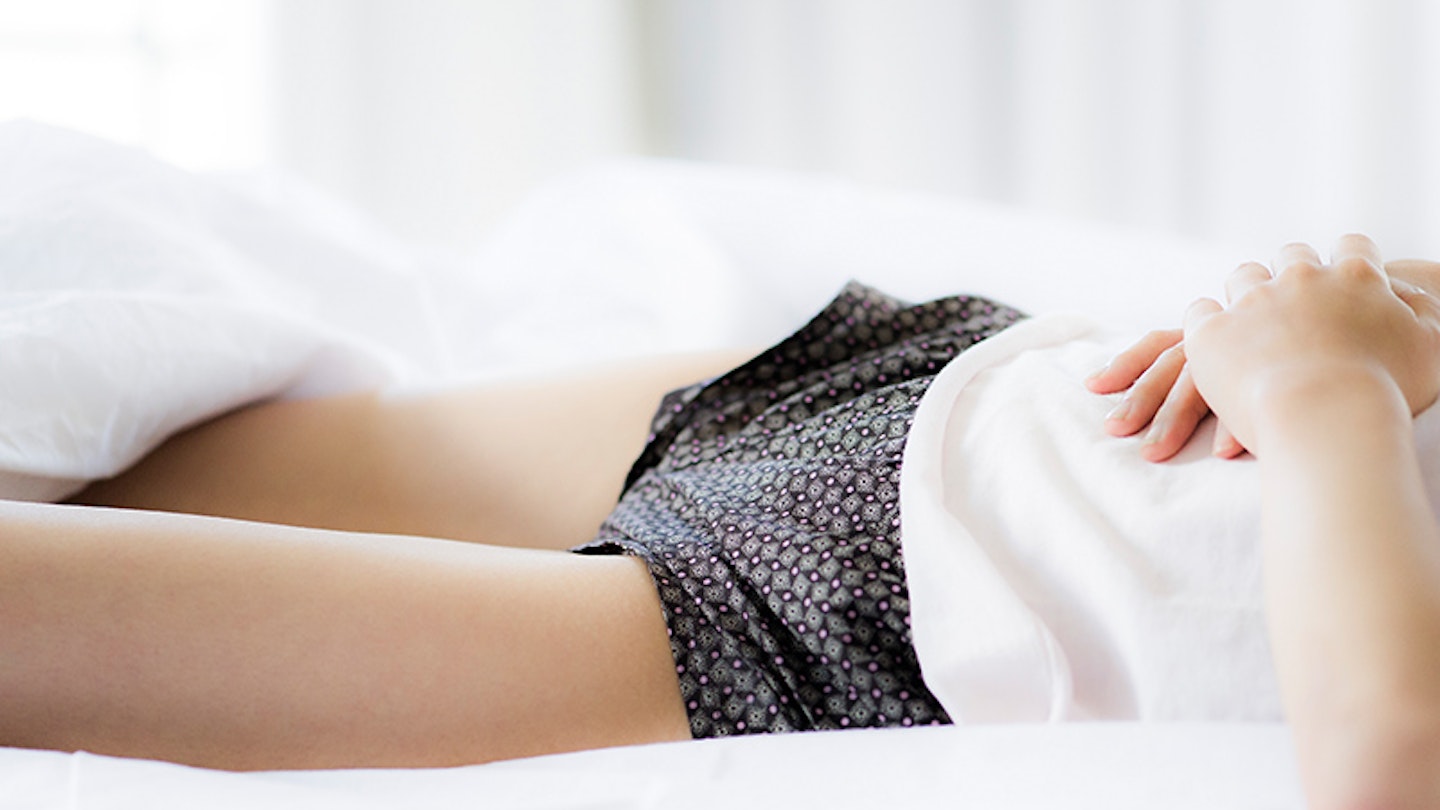Periods. Nobody likes them but nobody wants them to be non-existent or irregular without explanation. If you associate a regular menstrual cycle with being healthy, you might start to worry when it is unpredictable, especially when it comes to your first period after birth.
You may have worn period pants postpartum in the first few weeks after giving birth - but when can you expect your period to return to its usual routine (whatever this may mean for your time of the month)? Periods of course differs from woman to woman, you may experience spotting or ovulation bleeding, have period cramps or feel nothing at all. The same goes for after pregnancy and birth.
We've found out everything you need to know about your first periods after birth and pregnancy to help put your mind at ease.
When will my period return?
As mentioned, every woman is different so it's difficult to pinpoint when you can expect your periods to start again after you've given birth. Typically, it will return about six to eight weeks after birth but whether you breastfeed or bottle-feed your baby can actually make a difference to this.
In the below video Susan and Sharzad from FAM sit down with Angel Laketa Moore to talk about when they got their period back after pregnancy, how each of their timings differed and why.
Is it normal to have irregular periods after having a baby?
Pregnancy hormones have a drastic impact on our body as they prepare us for childbearing, birthing and breastfeeding. Hormone levels do not go back to normal immediately after birth meaning the hormones which usually regulate our periods are less important during this busy time for your body.
It is completely normal for women to experience irregular periods after birth and changes in the frequency and volume of your period after pregnancy are possible.
Are periods irregular while breastfeeding?
Breastfeeding mothers begin ovulation after birth much later. Prolactin, the hormone responsible for the secretion of milk suppresses the process of ovulation which means while a mother is breastfeeding, prolactin will remain in the body, affecting the ovulation process. Only once a successful ovulation cycle is completed will you start menstruating again.

Can my period affect my breastmilk?
Once your period has returned, you might notice a few differences due to the hormonal changes that cause your period. This may include a decrease in how often your baby wants to feed and even milk supply. Although you won't ever know this, your baby could find the taste is different to before. It's unlikely that these changes will affect your breastfeeding journey.
What if I bottle feed?
The NHS say: "If you bottle feed your baby, or combine bottle feeding with breastfeeding, your first period could start as soon as 5 to 6 weeks after you give birth."
What should I expect from my first period postpartum?
Again, every new mum is different so there are no specifics to look out for. You could experience:
• Irregular periods
• Cramping
• Heavier periods than previously
• Small blood clots.
Keep an eye on this though as the NHS say: "If you have had blood clots in your period that have lasted a week, or have much heavier blood loss than you have had before, you should speak to your midwife, health visitor or GP."
What else can affect my periods?
As well as changes in your hormones there are other factors that can influence your periods post-birth. Women gain a significant amount of weight during pregnancy and after birth, this doesn't always just disappear.
Some mums might even lose weight too quickly due to lack of sleep and a poor diet. Weight has a strong influence on the hormones in the body and this further affects your menstrual cycle.
Ovulation also plays a key role in our menstrual cycle and as the frequency of ovulation decreases after pregnancy this may lead to irregular periods.
Can I do anything to help my hormones?
Hormones may reach normal levels more quickly depending on whether you exercise or have sex after birth but they often remain erratic and unpredictable for months. If you exercise you are more likely to regain your pre-pregnancy body and maintain your weight. This helps restore the hormone balance in your body which is a significant factor in determining your periods. Try these exercises that you can do with your baby.
Having a healthy diet post-birth is very important as it helps to restore the nutrients lost during pregnancy and childbirth. It is a good idea to eat a balanced diet of fruit, vegetables, nuts and grains to give your body the important micronutrients needed to repair the body, look out for those post birth superfoods. A healthy diet will also influence any hormone imbalances in the body.
Trying to be calm and stress-free with a newborn is easier said than done. The lack of sleep, new responsibilities and the emotional impact of having a baby can make new mums very stressed. However, you guessed it, being stressed also has an impact on your hormone levels. Try meditation/mindfulness techniques, talking to friends and family or postnatal yoga (when you get a chance!) to keep stress levels low.
When would I be able to get pregnant again?
Even if your periods haven't started yet, you can get pregnant as little as three weeks after giving birth.
